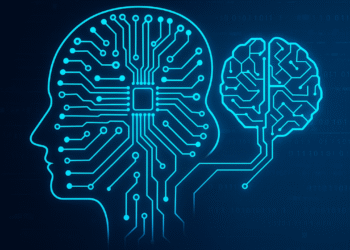Introduction
The fusion of artificial intelligence (AI) and blockchain technology is revolutionizing multiple industries, from finance to healthcare. This integration is creating unprecedented opportunities, enhancing security, automating decision-making, and optimizing decentralized processes. As AI continues to evolve and blockchain gains mainstream adoption, the synergy between AI and blockchain is shaping the future of digital transformation.
In this blog, we will explore how AI and blockchain complement each other, their real-world applications, and how businesses and investors can leverage this cutting-edge convergence.
How AI and Blockchain Complement Each Other
1. Enhanced Security and Data Integrity
One of the most significant benefits of integrating AI with blockchain is data security. Blockchain technology ensures immutability and transparency, preventing unauthorized alterations or tampering of data. AI, on the other hand, strengthens security with predictive analytics and anomaly detection, helping to prevent fraud and cyber threats.
For example, AI-powered algorithms can analyze blockchain transaction patterns to detect fraudulent activities in financial networks. This makes transactions not only secure but also efficient and reliable.
2. Decentralized AI Models
Traditional AI systems are centralized, often controlled by major tech companies like Google, Amazon, or Microsoft. This raises concerns about data privacy, monopolization, and potential biases. By leveraging blockchain, AI models can be decentralized, making them more transparent, fair, and accessible to a global audience.
Projects like SingularityNET and Ocean Protocol are pioneering decentralized AI marketplaces, allowing users to buy and sell AI services while maintaining data privacy and ownership.
3. Smart Contracts and AI-driven Automation
Smart contracts, powered by blockchain, automate transactions without intermediaries. When combined with AI, these contracts can evolve into self-improving agreements capable of learning from data and optimizing execution conditions over time.
For example, AI-enhanced smart contracts in DeFi (Decentralized Finance) can adjust lending rates, predict market fluctuations, and automate asset management based on real-time analytics.
4. Scalability and Efficiency
Blockchain networks, especially Ethereum and Solana, often face scalability challenges due to high transaction fees and slow processing times. AI can help optimize blockchain efficiency by introducing predictive algorithms and off-chain computing solutions that reduce congestion and improve transaction speeds.
For instance, AI-driven consensus mechanisms like proof-of-learning (PoL) could replace traditional proof-of-work (PoW) systems, making blockchain operations more energy-efficient and cost-effective.
Real-World Applications of AI and Blockchain
1. AI in Crypto Trading and Portfolio Management
AI-driven trading bots are increasingly being used in the cryptocurrency market to analyze market trends, detect profitable trading patterns, and automate trading strategies. These bots leverage blockchain to ensure transparency and tamper-proof transaction records.
Start Trading Today:
2. Healthcare and Medical Data Security
The integration of AI and blockchain is transforming healthcare by improving data security, patient privacy, and medical research. Blockchain secures medical records while AI analyzes patient data for better diagnostics. Companies like BurstIQ and Nebula Genomics are leading the way in blockchain-based healthcare data management.
3. Supply Chain Optimization
AI enhances supply chain management by predicting demand fluctuations and optimizing logistics, while blockchain ensures transparent tracking of goods and services. IBM’s Food Trust blockchain network, combined with AI-powered analytics, is improving food safety and reducing waste worldwide.
4. NFTs and AI-Generated Art
The NFT (Non-Fungible Token) market has exploded, and AI is playing a significant role in generating digital art, music, and collectibles. AI algorithms create unique, verifiable assets, which are then tokenized on blockchain networks like Ethereum and Tezos.
5. AI-powered Decentralized Identity (DID)
Blockchain’s decentralized identity (DID) solutions, combined with AI verification systems, offer more secure and efficient authentication methods. This is particularly beneficial for financial institutions, government agencies, and remote workforce management.
Secure Your Crypto Assets
Protect your investments with trusted hardware wallets:
Future Investment Opportunities
As AI and blockchain technologies continue to advance, investors and businesses have a unique opportunity to capitalize on this growing sector. Here are some investment opportunities:
- AI-driven blockchain startups – Companies integrating AI into blockchain services are expected to see exponential growth.
- DeFi and AI-powered finance platforms – Investing in AI-enhanced DeFi projects can provide high returns.
- AI-powered NFT marketplaces – AI-generated NFTs are gaining traction and present a lucrative investment option.
- AI-enhanced cybersecurity solutions – Companies leveraging AI and blockchain for fraud prevention and identity verification will be in high demand.
Conclusion
The integration of AI and blockchain is paving the way for a new digital revolution. From decentralized finance and healthcare innovations to AI-generated NFTs and cybersecurity solutions, this synergy is unlocking immense potential.
For businesses and investors, now is the perfect time to explore opportunities in AI-driven blockchain projects. As these technologies mature, we can expect even greater efficiencies, automation, and security in the global digital economy.
Disclaimer
This article is for informational purposes only and should not be considered financial, investment, or legal advice. Always conduct your own research and consult with a professional before making any investment or business decisions related to AI and blockchain technologies.










